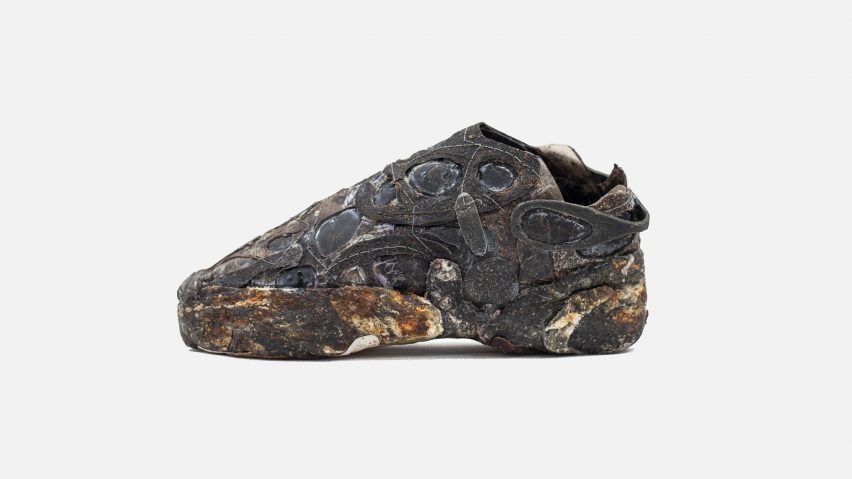
Olaniyi Studio creates "living" footwear designed to decay
Architect Yussef Agbo-Ola of environmental design practice Olaniyi Studio has created a series of shoes made from biomaterials, which are designed to curl up like plants when they decay.
Called Kajola, the collection comprises nine experimental shoes made out of natural materials including clay, volcanic dust and cacao powder.
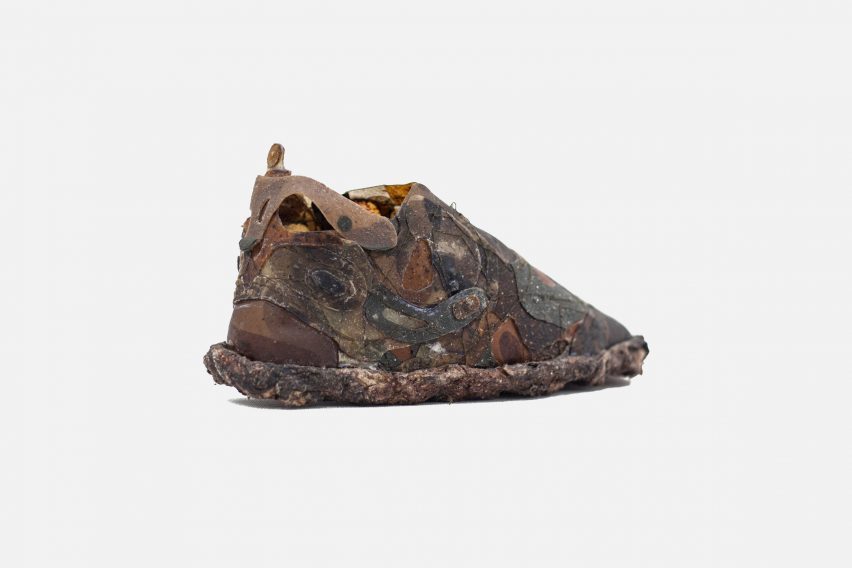
London-based Olaniyi Studio said it created the footwear to be artworks rather than functional objects.
"The Kajola capsule collection is not wearable, but rather [the shoes] exist as living artefacts," the studio's founder Agbo-Ola told Dezeen.
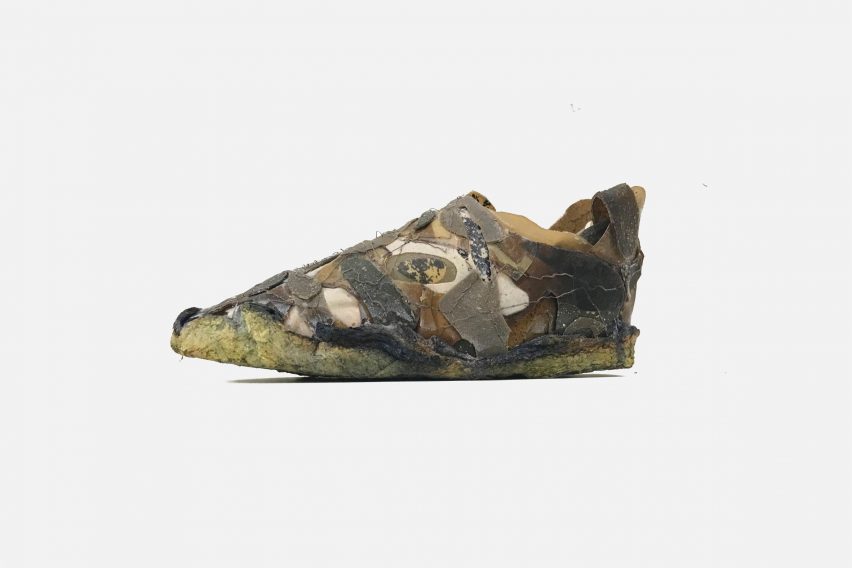
Organically shaped, the slipper-like footwear features soles made from plant fibres mixed with clays, plant starch and other organic materials.
Patterns for the upper portion of each shoe were hand cut and sewn together with natural fibres using a Japanese shoe patcher sewing machine designed for repairing leather goods.
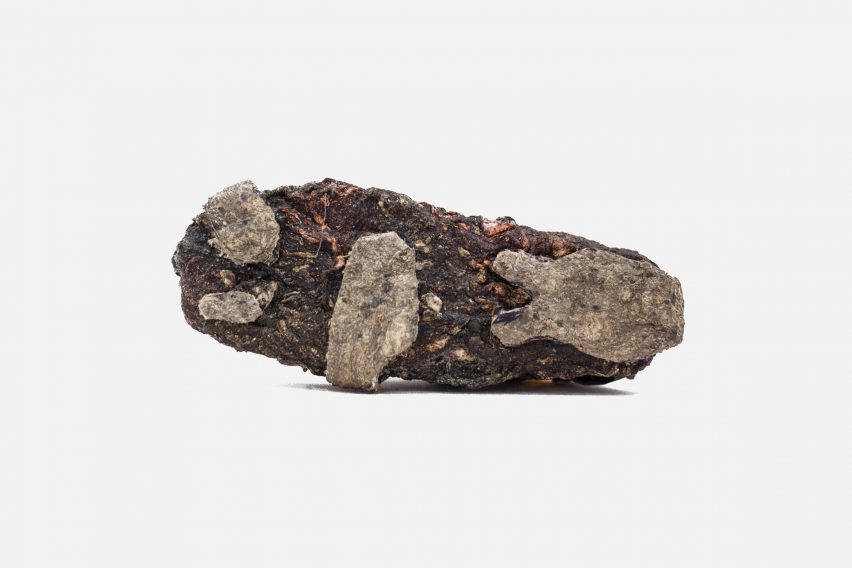
The collection was informed by the skin of plants, according to Agbo-Ola, and in particular the way the leaves of certain plants shrivel up when they begin to rot.
"I was specifically inspired by how some plants curl or roll up when they decay," he said. "This process made me think of an architectural tension or balance that could happen if two plants were woven together in opposite curling directions."
"I began to research more about the properties of plant skin, and how this material and the process of decay could be used as a system for footwear," he added.
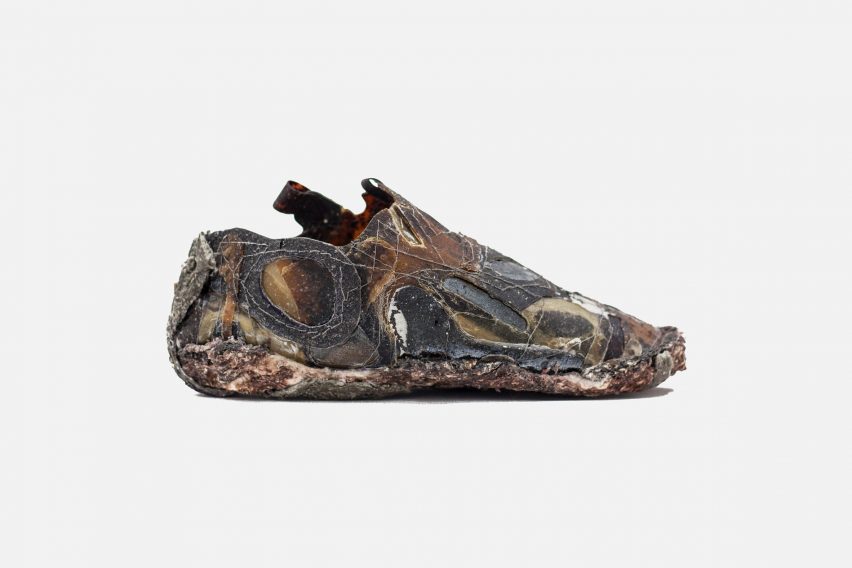
The upper portion of each shoe includes natural additives such as herbs, sand, flowers and algae that were chosen to control the footwear's rate of degradation.
The earthy hues and uneven surfaces featured throughought the collection nod to the various textures and colours that plants exhibit at different stages of the decomposition process.
The Kajola collection was named after an area of Nigeria and informed by a trip to a local forests, where Agbo-Ola explored the process of decay in organic matter.
While the collection is not designed to be functional and will remain as a limited edition of artworks, Olaniyi Studio is planning to develop a wearable version that could be for sale as soon as 2023.
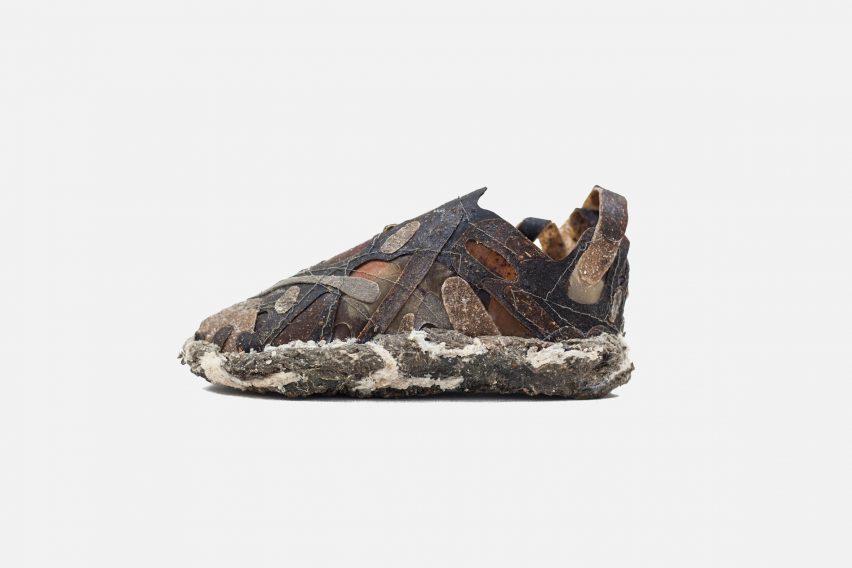
"We are currently building a team of engineers and material scientists to develop a working series of prototypes using our plant-based material skins fused with recycled ocean plastics and recycled rubber as a formula for 3D-printed sole composition," said Agbo-Ola.
"My aim is to push the potential of materials far beyond the known in relation to what plants can do, as well as design for a generation that is not here yet but could use the shoe as inspiration for the possibilities of plant-based footwear."
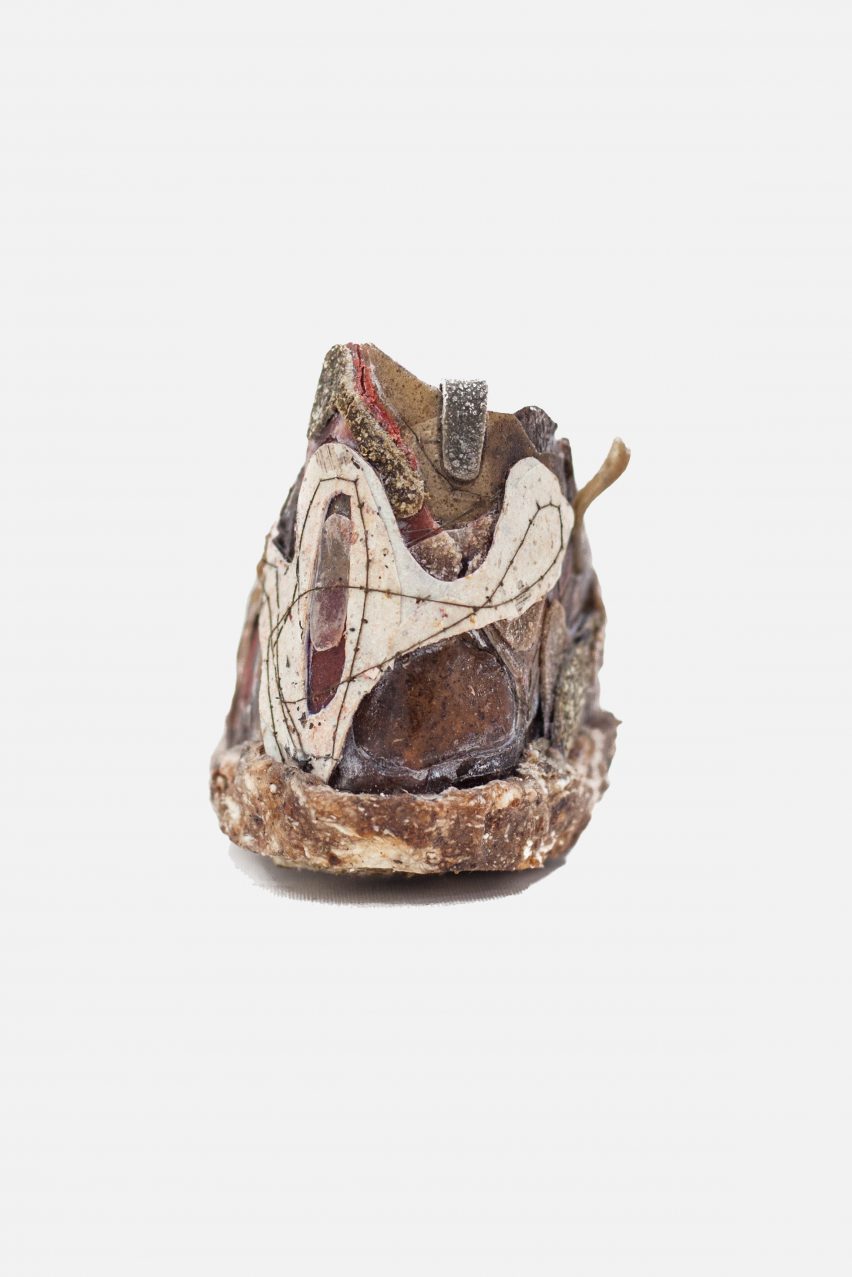
Agbo-Ola also recently collaborated with cacao farmer Tabita Rezaire to create an installation exploring medicinal plants, which is on display at London's Serpentine Gallery as part of the climate-focused exhibition Back to Earth.
Here, bouquets of rosemary, lemon thyme and green sage were strung up on knitted screens and left to dry and release their scent over the course of the exhibition.
The images are courtesy of Olaniyi Studio.